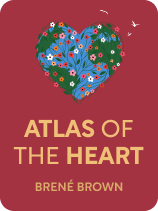

This article is an excerpt from the Shortform book guide to "Atlas of the Heart" by Brené Brown. Shortform has the world's best summaries and analyses of books you should be reading.
Like this article? Sign up for a free trial here .
Do you often feel stressed and/or anxious? What exactly is stress, and how is it different from anxiety?
Many people use stress and anxiety interchangeably, but they actually stem from different places. You feel stressed when there’s more on your plate than you can handle. You feel anxious when you don’t have control over your future.
Keep reading to learn about the difference between stress versus anxiety.
When Dealing With Uncertainty: Stress and Anxiety
What is the difference between stress versus anxiety? When events demand more of us than we feel we can give, we experience stress. For example, if you have more work on your plate than you can handle, you probably feel stressed about it. When we’re stressed, we benefit from support; we need people to ask how they can help and to take some of the work off of our plates. In extreme cases, we can become so stressed that we can’t even function—Brown calls this state overwhelm. We’re so overloaded that we shut down physically and mentally. Others asking us what we need is not helpful here, because we might not be able to come up with an answer. The only way out of overwhelm is to take a break, disconnect, and do nothing for a while.
Anxiety, simply put, is concern about the future. Brown explains it as feeling like we’re not in control—we don’t know what’s going to happen, so we imagine the worst. For example, if you’re waiting for the results of a medical test, you might be anxious about what those results will show. Interestingly, excitement is nearly identical to anxiety, but we interpret the feelings in a positive way instead of a negative one. For example, one person might find gambling thrilling, while another can only imagine losing all of his or her money.
Turn Anxiety Into Excitement
In Emotional Intelligence, Daniel Goleman explains that anxiety is a sort of mental rehearsal: We repeatedly imagine what could go wrong so that we can prepare ourselves to deal with it. However, in many cases, we keep worrying long past the point of any benefit; you can only go over an event so many times before there’s nothing left to plan.
Goleman suggests using a set of four questions to help break out of this cycle of anxiety. In some cases, we can also use these questions to turn that anxiety to excitement:
- How likely is the thing I’m afraid of? For example, if you’re afraid of flying because you think your plane will crash, a little research will show that it’s a one-in-a-million chance—literally.
- How else might the situation play out? This is where you have the chance to start turning anxiety into excitement. Instead of imagining all the ways the situation could be unpleasant or dangerous, think of how it could be enjoyable or fun.
- What steps can I take to deal with this problem? In other words, if the dreaded event happens, how will you handle it? Make a plan for your exciting situation as well—if the situation ends up being enjoyable, how will you take full advantage of it?
- Is all of this worrying helpful? Once you’ve figured out how likely an unpleasant event is, made a plan for how to handle it, and considered how things might go better than you expect (and made a plan for that as well), step back and ask if there’s any benefit to thinking about it further. If all you’re doing is spinning your mental wheels, then it’s time to disengage and find something else to occupy your mind for a while.
Whereas anxiety is concern about the unknown, fear is a response to a perceived threat. Fear is a short-lived sensation that prepares us to deal with immediate danger using Fight, Flight, or Freeze responses.
- Fight: defending ourselves from the danger
- Flight: escaping from the danger
- Freeze: stopping in place, hoping the danger will pass us by without noticing
(Shortform note: Fear is such a powerful emotion because it’s hardwired into our biology—it kept our ancestors safe from predators and other dangers, and it still helps keep us alive today. Unfortunately, while fear is useful, what we feel is often disproportionate to any actual threat. For instance, there’s no need to fight, flee, or freeze in response to an exam question; all you can do is answer it.)

———End of Preview———
Like what you just read? Read the rest of the world's best book summary and analysis of Brené Brown's "Atlas of the Heart" at Shortform .
Here's what you'll find in our full Atlas of the Heart summary :
- Brené Brown's guide to the many emotions and mental states that people feel
- Explanations of 87 emotions, along with the situations where you’re likely to encounter them
- How to form deeper connections with the people around you






